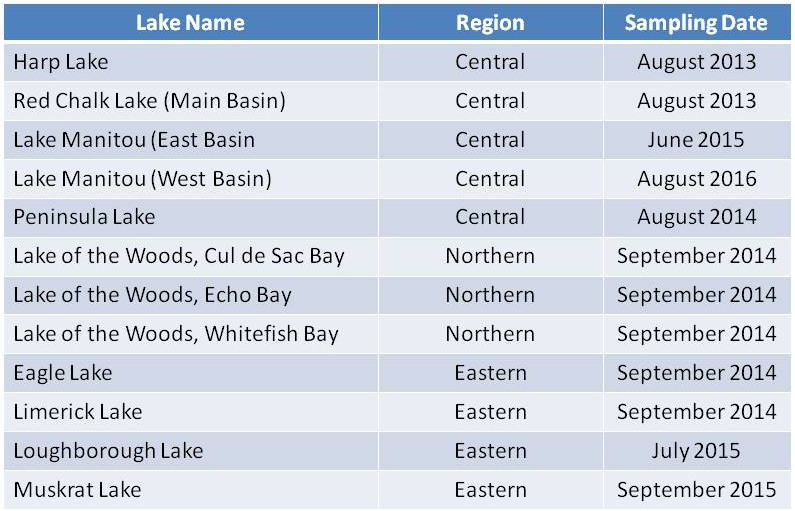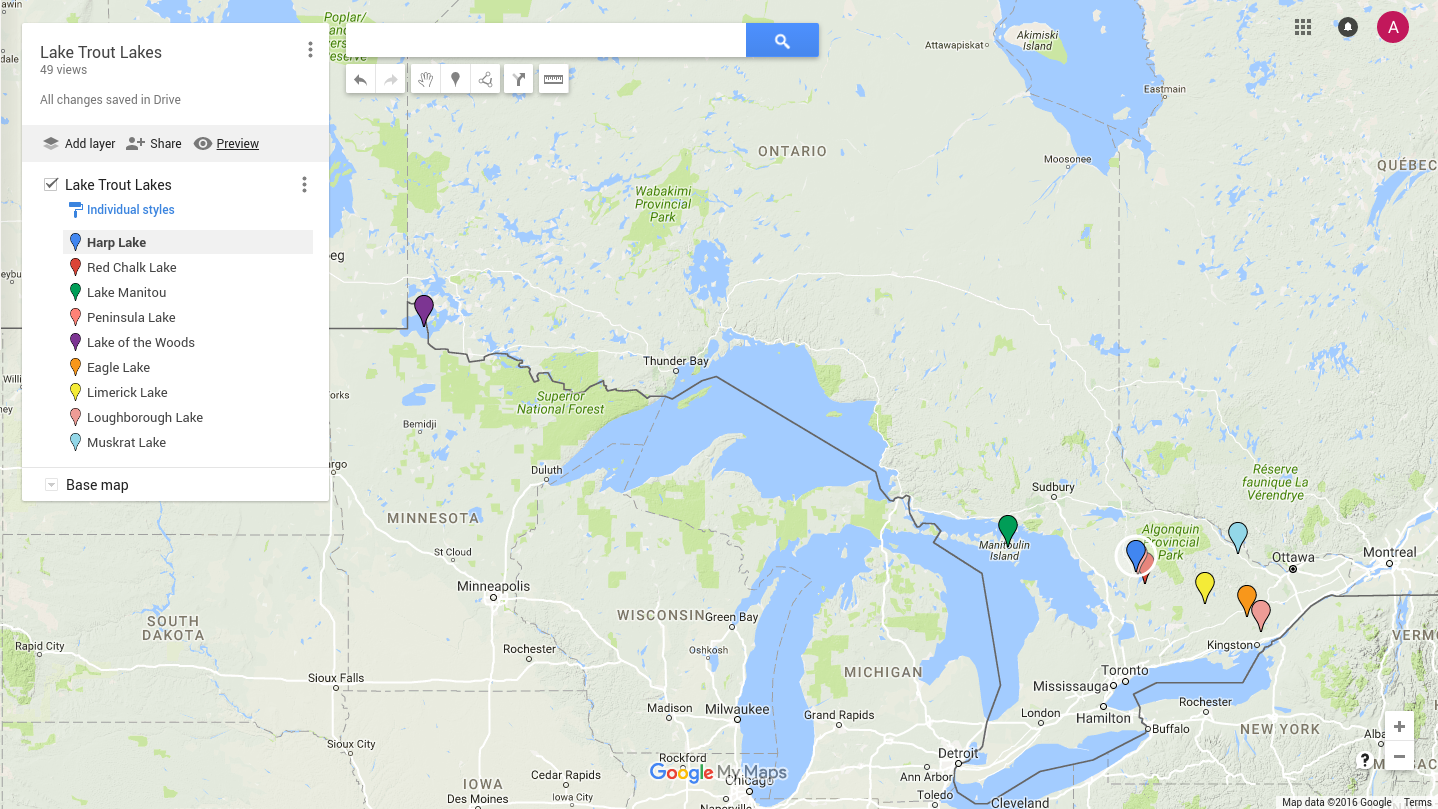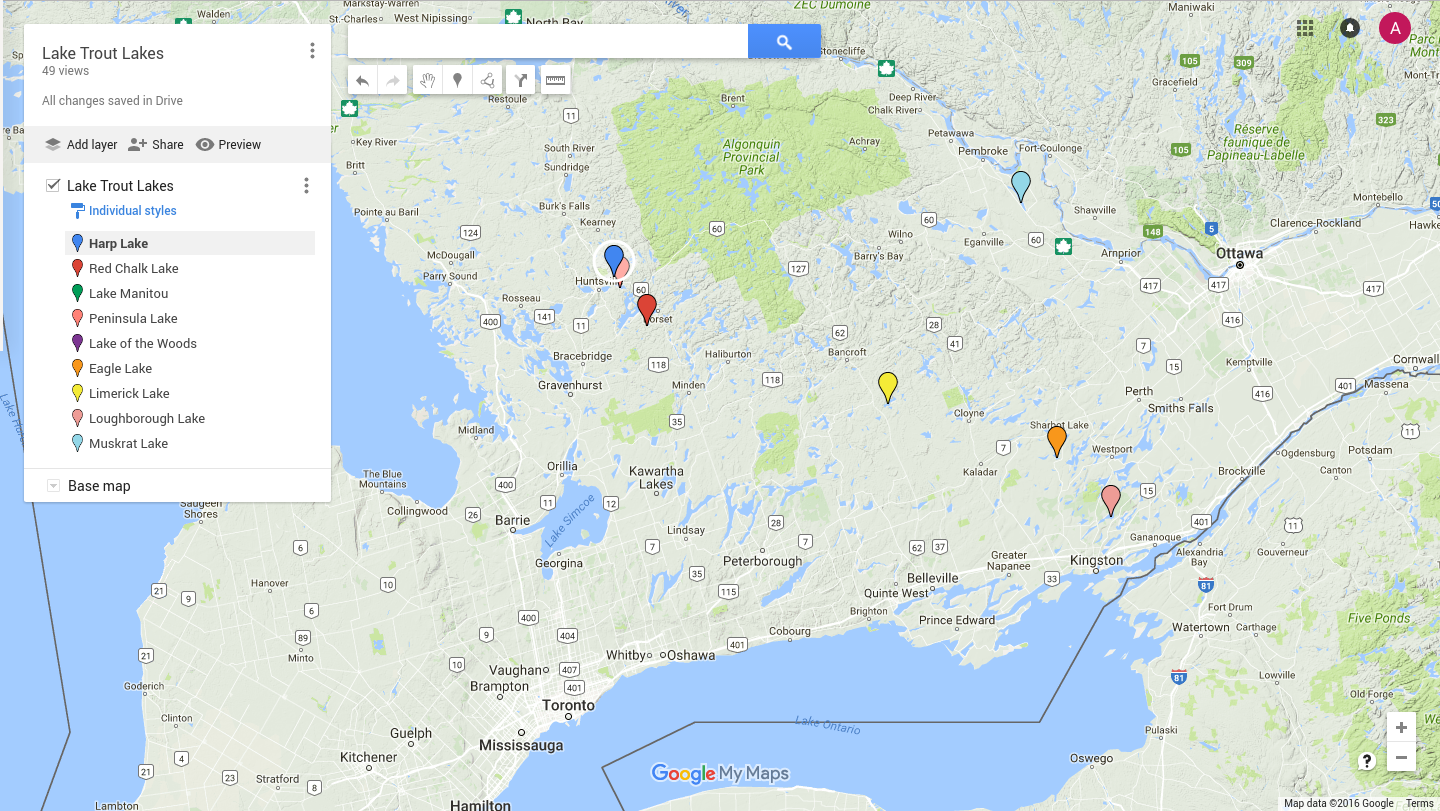Study Lakes
Our project is focused on lake trout lakes in Ontario, a province that contains ~20-25% of the global supply of this rare and significant resource. Fortunately, some of our partners (the Ontario Ministries of Natural Resources and Environment) maintain rich, long-term datasets (i.e., decades) of physical, chemical and biological parameters for many of these lakes. In some cases, these datasets include detailed information on watershed hydrology, nutrient export and meteorological conditions, variables that are required for the development and calibration of our models.
The Ontario Ministry of the Environment's Dorset Environmental Science Centre (DESC), is located in the heart of Ontario's cottage country, near the southern boundary of the Precambrian Shield, ~200 km north of Toronto. Through multi-sector partnerships, DESC monitors lake conditions and conducts scientific research on approximately 100 lakes within south-central Ontario. Additional data, collected by DESC research partners, are available from hundreds of other lakes in eastern, central and northern Ontario. In addition to routine lake monitoring, a subset of these lakes (the "A" lakes) are also instrumented for detailed data collection for measuring hydrological inputs and outputs, and to apply mass-balance and modeling assessments. Nearby meteorological stations provide high-frequency data on climatic conditions. These lakes contain detailed physical and chemical information collected over decades, including annual assessments of end-of-summer hypolimnetic oxygen levels. Two "A" lakes that contain lake trout (Harp Lake, Red Chalk Lake) will serve as key calibration lakes for the dynamic forecasting model (Theme 3) and the paleolimnological reconstructions (Theme 1). More than 35 years of continuous, ice-free data are available for these lakes. The approximately 100 lakes from the broader lake set vary in morphometry and the degree of human disturbance, and will be used to calibrate and test the empirical steady-state model (Theme 2).
Consultation with our supporting organizations has identified several lakes that are of significant interest based on management concerns. These lakes contain naturally-reproducing lake trout populations, have long-term oxygen data, and fall into at least one of the following categories:
- There is significant shoreline development pressure or agriculture in the watershed
- There have been long-term changes in measured hypolimnetic [DO]
- They are near or below the provincial guideline of 7 ppm for end-of-summer mean volume-weighted hypolimnetic [DO]
- They are of current management concern for water quality or have experienced recent algal blooms.
The test lakes in Central, Eastern and Northern Ontario that will be analyzed in this project are: Eagle Lake, Lake Manitou, Lake of the Woods, Limerick Lake, Loughborough Lake, Muskrat Lake and Peninsula Lake. All of these lakes meet the criteria described above and have multiple years of monitoring data, including measured end-of-summer [DO] that can be used to validate the models.


